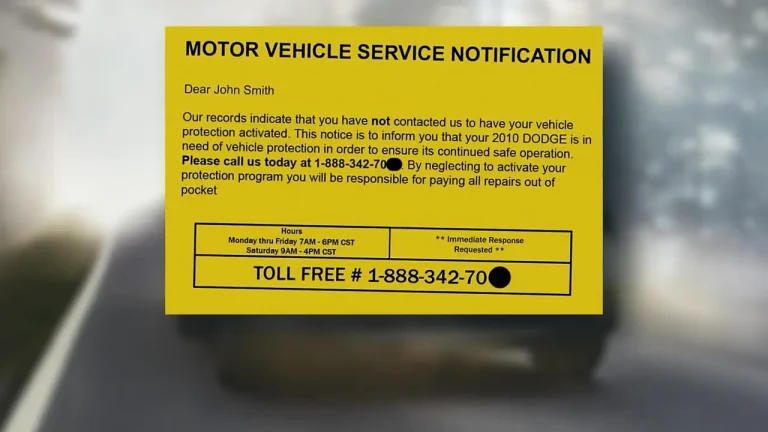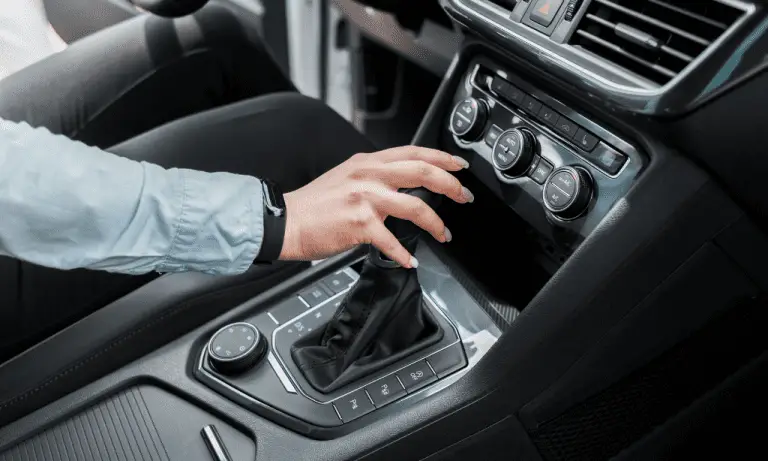Find Out the Truth: How Long Can a Car Idle Before It’s Damaging?
A car can idle for several hours without causing significant damage to the engine, but it is not recommended for prolonged periods to avoid excessive wear and tear on the engine components.
Why Idle Time Matters
Idle time can have a significant impact on your car’s overall health and performance. While it may seem harmless to let your car idle, it can actually lead to a variety of issues that can be costly to repair. In this section of the blog post, we will explore the reasons why idle time matters and how it can affect different parts of your car.
Idle Time’S Impact On Engine Oil
- When your car is idling, the engine is running without providing any power to the wheels. As a result, the engine oil is not flowing as effectively as when the car is in motion.
- This can lead to a buildup of contaminants in the oil, as well as reduced lubrication throughout the engine.
- Over time, the dirty oil can cause increased friction and wear on engine components, potentially leading to engine damage or even failure.
Idle Time’S Effect On Battery Life
- Idle time can put a strain on your car’s battery, as the alternator is not generating enough power to fully recharge it.
- Continuous idling can gradually drain the battery, leading to a weaker electrical system and potentially leaving you stranded with a dead battery.
- Additionally, frequent idling without proper driving can result in a buildup of sulfuric acid on the battery terminals, which can further reduce battery life and performance.
How Idling Affects The Spark Plugs
- Idle time can cause spark plugs to become fouled or dirty.
- When the engine is idling, the spark plugs are not being used at their optimal temperature, leading to incomplete combustion and the accumulation of carbon deposits on the spark plugs.
- This can result in misfires, reduced fuel efficiency, poor acceleration, and even engine hesitation or stalling.
Idle time can have a negative impact on various parts of your car, including the engine oil, battery, and spark plugs. To maintain your car’s health and prevent potential issues in the long run, it is advisable to minimize idle time whenever possible.
By turning off the engine when you don’t need to be idling, you can save fuel, reduce emissions, and extend the lifespan of your car’s vital components.
The Effects Of Long Idle Durations
Understanding The Consequences Of Prolonged Idling
When it comes to idling your car for extended periods of time, it’s important to be aware of the potential consequences. While idling may seem harmless, it can actually have negative effects on your car, including overheating and increased wear and tear on engine components.
In this section, we will delve deeper into these issues and explain why prolonged idling is bad for your car. So let’s get started!
Overheating And Damage To The Radiator
Idling your car for too long can lead to overheating, which is definitely not good for your engine. Here’s why:
- When your car is idling, there is less airflow passing through the radiator, which is responsible for cooling the engine. Without proper airflow, the radiator is unable to dissipate heat effectively.
- This lack of cooling can cause the engine to heat up excessively, leading to potential damage to various engine components, such as the cylinder heads and gaskets.
- Overheating can also result in the radiator itself becoming damaged, as the excessive heat puts additional stress on its internal components.
To summarize, prolonged idling can cause your car’s engine to overheat, which can result in damage to both the engine and the radiator.
Increased Wear And Tear On Engine Components
In addition to overheating, prolonged idling can also result in increased wear and tear on your car’s engine components. Here’s why this happens:
- When a car is idling, the engine is still running but not operating at its optimal temperature. This can cause incomplete fuel combustion, leading to the build-up of harmful deposits within the engine.
- Over time, these deposits can accumulate and affect the performance and efficiency of the engine. They can clog fuel injectors, decrease fuel economy, and even cause the engine to misfire.
- Furthermore, idling for extended periods can result in inadequate lubrication of engine components. Without proper lubrication, friction between the moving parts of the engine can increase, leading to accelerated wear and potentially costly repairs.
To sum it up, prolonged idling can contribute to increased wear and tear on important engine components, compromise fuel efficiency, and potentially lead to costly repairs in the long run.
While idling your car may provide temporary convenience or comfort, it is important to be aware of the negative effects it can have on your vehicle. Overheating and increased wear and tear on engine components are just a couple of the repercussions of prolonged idling.
To ensure the longevity and optimal performance of your car, it’s best to limit unnecessary idling and turn off the engine when it’s not needed.
Factors To Consider For Safe Idling
The Ideal Amount Of Time To Let A Car Idle
When it comes to letting your car idle, there is an ideal amount of time that you should consider. Here are some key points to keep in mind:
- Idling for too long can be wasteful: While it may be tempting to let your car idle for extended periods, it’s important to note that idling for more than a minute or two can waste fuel. This can add up over time, impacting both your wallet and the environment.
- Avoid excessive idling: Excessive idling can cause unnecessary wear and tear on your car’s engine. When your car is idling, it’s not operating at its most efficient mode. This can lead to increased fuel consumption, decreased engine performance, and potential long-term damage.
- Consider the weather conditions: In colder climates, it may be necessary to let your car idle for a short period to warm up the engine. However, advances in modern engines and synthetic oils have reduced the need for excessive idling even in cold weather. Consult your car’s manual for specific recommendations.
- Traffic conditions matter: In heavy traffic or stop-and-go situations, it may be challenging to avoid idling. However, if you anticipate being stationary for an extended period, consider turning off your engine. Restarting a car uses less fuel compared to idling for several minutes.
- Be mindful of safety: In some situations, such as waiting in your car during extreme temperatures or ensuring the safety of passengers, idling may be necessary. However, always prioritize safety and use your judgment to determine the appropriate amount of idling time.
Alternative Options To Reduce Idling Time
Reducing idling time can benefit both your car and the environment. Here’s what you can do to minimize idling:
- Turn off your engine: If you anticipate being stationary for more than a minute, it’s more fuel-efficient to turn off your car’s engine and restart it when you’re ready to move again.
- Plan your trips efficiently: Combine multiple errands into one trip to minimize the number of times you need to start and stop your car. This reduces idling time and maximizes fuel efficiency.
- Consider carpooling or public transportation: Sharing rides or utilizing public transportation can significantly reduce the amount of time you spend idling in traffic. Plus, it has the added benefit of reducing traffic congestion and lowering carbon emissions.
- Invest in a hybrid or electric vehicle: Hybrid and electric vehicles are designed to minimize idling by utilizing their electric motors when stationary. If you’re in the market for a new car, exploring these options might be worth considering.
Strategies For Maintaining Optimal Car Performance
Taking proactive steps to maintain your car’s optimal performance can help mitigate potential issues related to idling. Here’s what you should keep in mind:
- Follow regular maintenance schedules: Adhering to the manufacturer’s recommended maintenance schedule is crucial in ensuring your car runs smoothly. Regular oil changes, air filter replacements, and tune-ups can help maintain optimal engine performance.
- Avoid excessive stop-and-go driving: Frequent acceleration and deceleration can put unnecessary strain on your car’s engine. Whenever possible, maintain steady speeds and avoid sudden stops or rapid accelerations.
- Choose the right motor oil: Using the recommended motor oil for your car can contribute to optimal engine performance. Consult your car’s manual or seek guidance from a qualified mechanic to determine the best oil for your vehicle.
- Keep tires properly inflated: Underinflated tires can put strain on your engine, leading to decreased fuel efficiency. Regularly check your tire pressure and ensure they are inflated to the manufacturer’s recommended levels.
Remember, every car is different, and it’s always best to consult your car’s manual or seek advice from a professional mechanic for specific recommendations on idling times and maintenance practices tailored to your vehicle. By being mindful of idling and adopting strategies to reduce unnecessary idling time, you can help preserve both your car’s longevity and the environment.
Conclusion
It is important to consider the effects of idling on your car. Excessive idling can lead to various issues, such as increased fuel consumption, carbon buildup in the engine, and potential damage to your vehicle’s components. While modern cars are designed to handle short periods of idling, extended idling can be detrimental to the engine’s health.
However, there are times when idling is unavoidable, such as in traffic or extreme weather conditions. In such cases, it is recommended to limit idling time and consider alternative solutions, like turning off the engine when parked for a longer duration.
By being mindful of your car’s idling behavior, you can maintain its performance and longevity while also reducing fuel consumption and environmental impact. So remember, while a short period of idling may not cause substantial harm, extended idling should be avoided whenever possible.
- Why Are My Car Headlights Not Bright Enough? - May 9, 2024
- How Long Can You Drive With An EVAP Leak? - May 9, 2024
- What Does B Stand for in a Car? [Full Guide] - May 9, 2024



![Smart Car Weight & Average Car Weight [Unveiling the Secrets]](https://automhelp.com/wp-content/uploads/2023/07/Smart-Car-Weight-768x461.png)
![What Is Syntex? [Is it Better Than Leather?]](https://automhelp.com/wp-content/uploads/2023/06/1-10-768x461.webp)